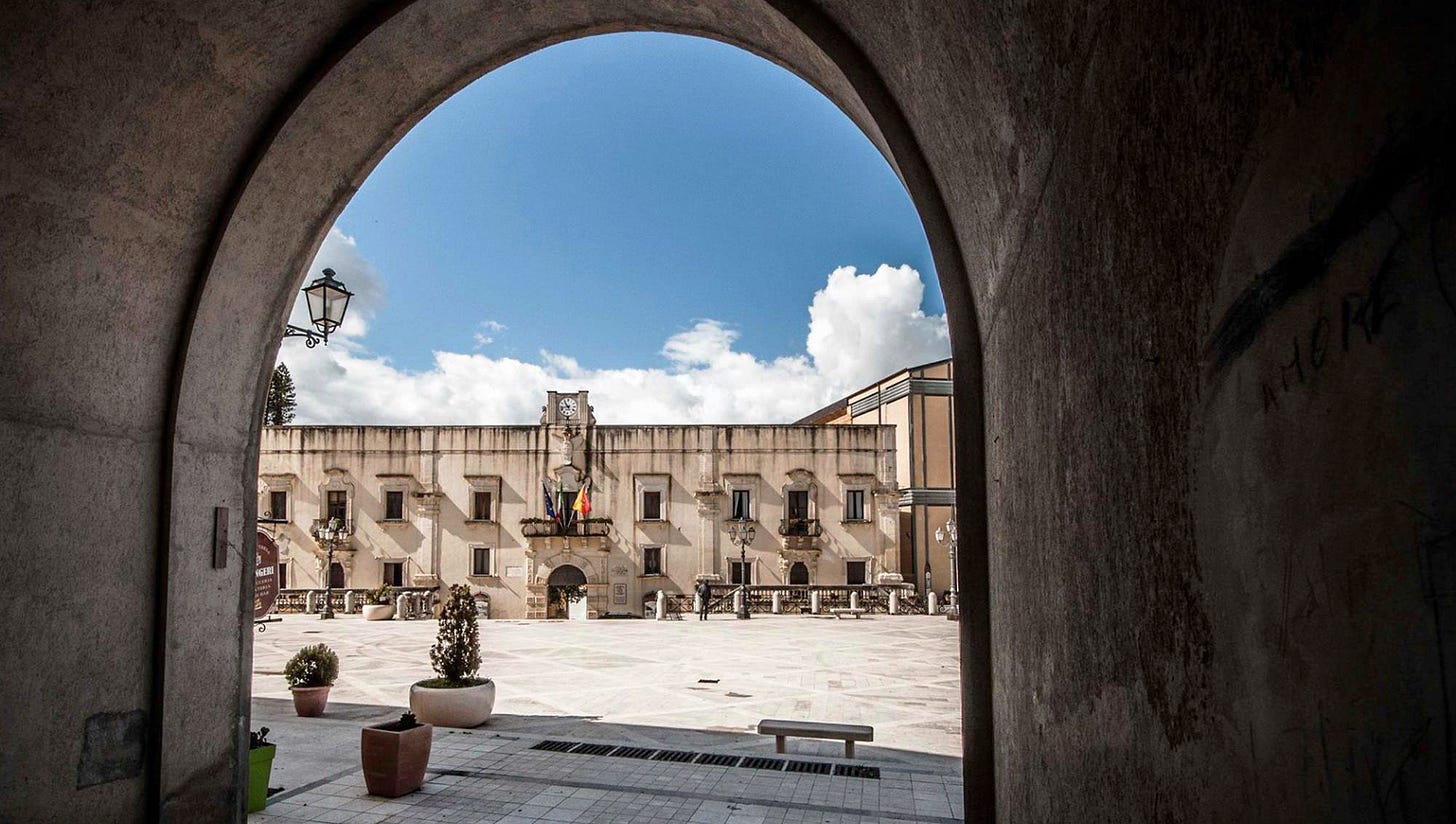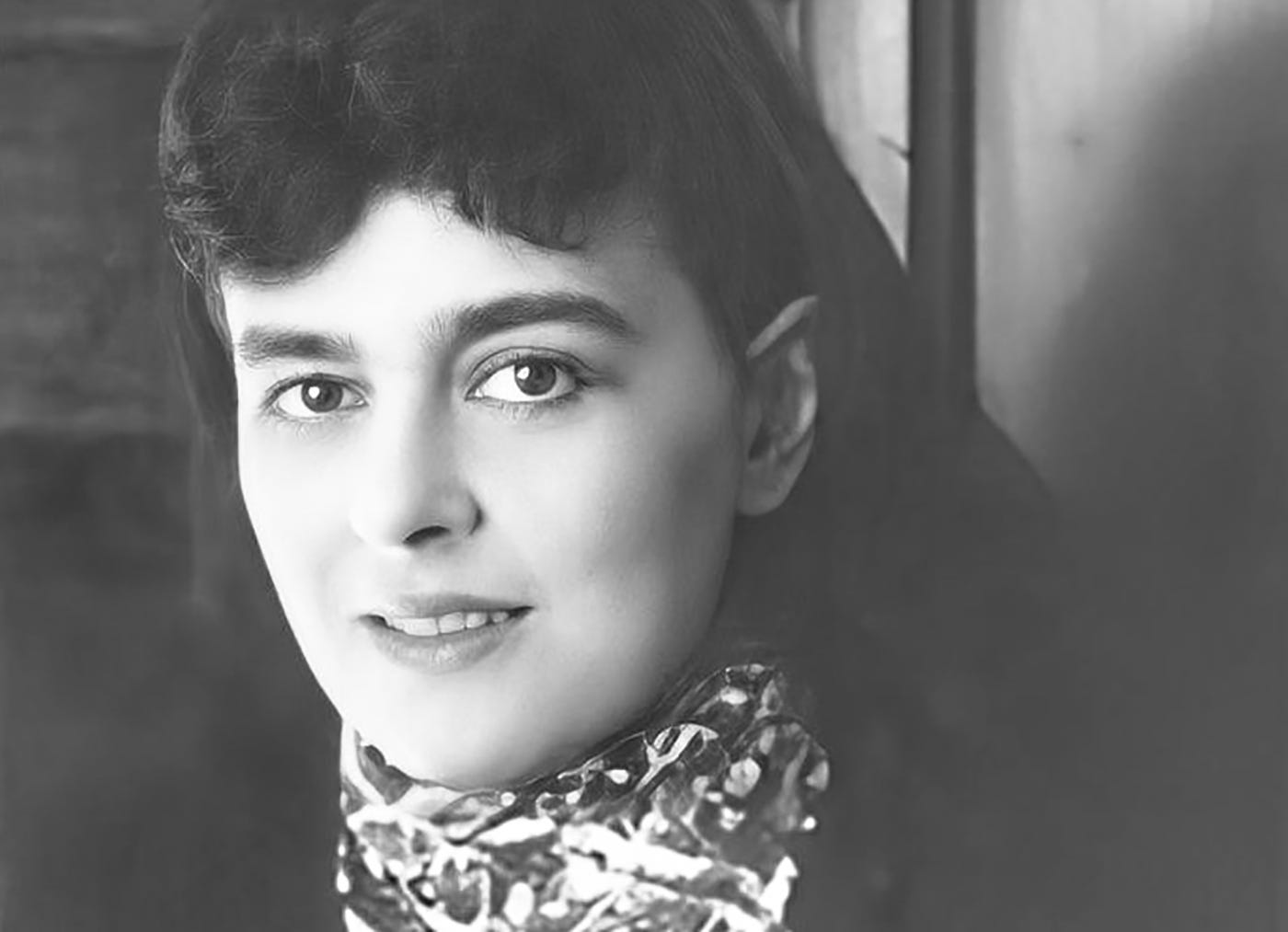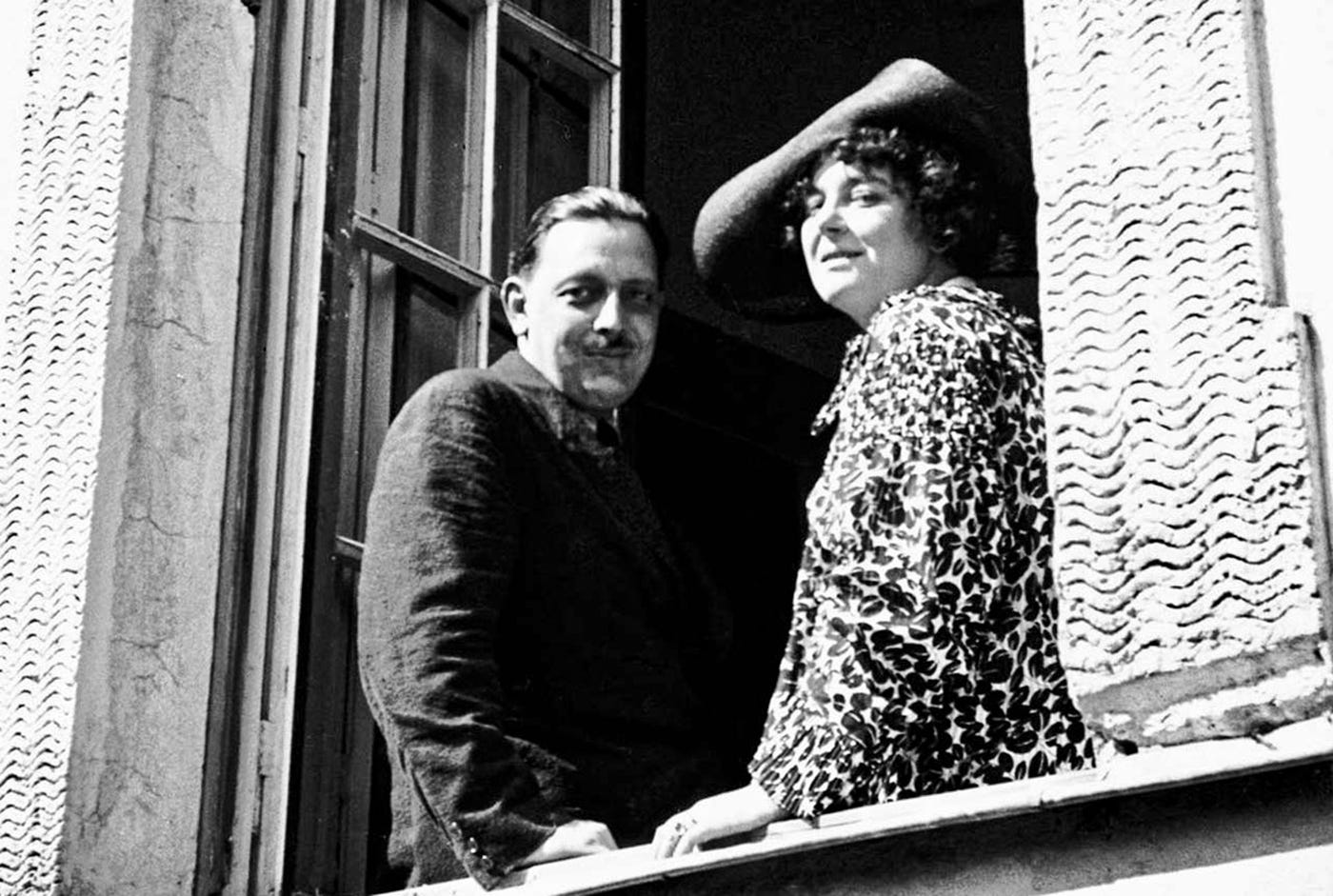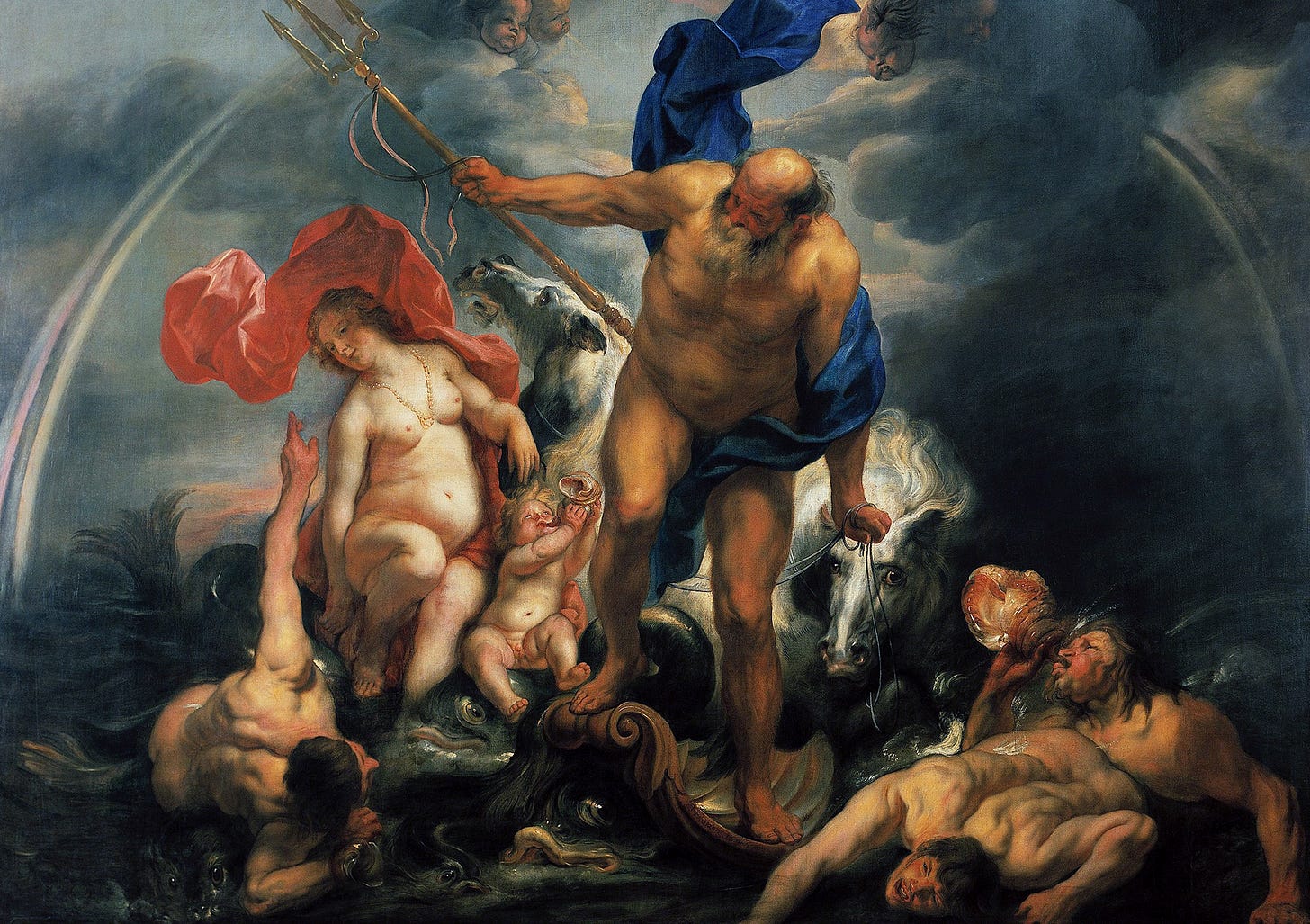Hey gang! This week we’re reading from pages 45 to 55, starting from “The Salina palace was next door to the Mother Church” and ending with “the haughty noble to whom rain would only be a personal nuisance showed himself a brother to his roughest peasants.”
Full disclosure, I’ve been out of town and I did not have time to proofread this week’s entry, please let me know if anything is missing or misspelled or wonky.
Licy
As we delve more into Fabrizio’s sense of self and the relationships with his family, it’s time to introduce you to one of the most important figures in Giuseppe Tomasi of Lampedusa’s family: his wife Licy, whose life story is quite remarkable.
Alexandra Wolff Stomersee, Princess of Lampedusa, was the daughter of Latvian baron Boris Wolff Stomersee and Italian opera singer Alice Barbi. Born in 1894, Aleksandra Borisovna spent her childhood and formative years at the court of Nicholas II in St. Petersburg, where her father was head of the Imperial Lyceum.
At the beginning of the Russian Revolution the Stomersee family fled to their Baltic estates, where Licy married Baron André Pilar von Pilchau (who was notoriously gay, I’d love to learn the story behind that decision.) Meanwhile she had grown deeply interested in psychoanalysis and in the 1920s she traveled to Germany to attend university and train as a psychiatrist (and even briefly met Sigmund Freud). She started seeing patients in Germany, Austria, Latvia and England, all the while publishing papers.
She met Giuseppe Tomasi in London in 1925 and eventually divorced her first husband (they remained great friends). Licy and Giuseppe were married in 1932 with a private Orthodox ceremony and gradually moved to Sicily. Life wasn’t easy at first: Licy was an accomplished woman, scientific, ambitious, dedicated to her career, just the opposite of what old-fashioned Sicilian aristocrats considered “proper”. Giuseppe’s mother was scandalized when she learned of the marriage and was downright hostile to her daughter-in-law.
Licy kept practicing psychoanalysis in Palermo and by the 1950s she was President of the Italian Psychoanalytic Society and way more famous and accomplished than her shy, unemployed husband. When Giuseppe died, she became guardian and champion of his literary legacy while still working full time. She published her last paper in 1980 at eighty-six years old; she died in 1982.
Licy’s influence on The Leopard is incalculable. We have thousands of letters she exchanged with her husband (in French for some reason, I’ve lost count of how many languages these two spoke), where she talked at length about her studies and patients. She introduced Freud to the Sicilian scientific community at large and to Giuseppe Tomasi in particular. The clash between Giuseppe’s traditional spirituality and Licy’s scientific views on human nature is all there in Fabrizio’s paradoxical personality.
Enchanted palace
Giuseppe Tomasi of Lampedusa was a man defined by nostalgia. Haunting the houses of his ancestors, he reflected on long lost times with bittersweet dedication. When the Lampedusa palace in Palermo was bombed during WWII the sense of loss, both personal and historical, was brutal. Years later, Licy recalled this conversation:
My husband and I were sitting on a bench looking at the moon, he was sad, restless, he couldn’t get used to the new house […] I told him, the moon is the same everywhere, it’s light in fantasy and imagination; why, I asked him, don’t you try to imagine the life lived by the old palace, what was it like, what was happening inside? Write, and it will live again.
The house in Donnafugata is based on the palace Filangeri di Cutò, where Tomasi used to spend his childhood summers. In his old age he brings it back to life, waving a pen like a wand, preserving it with a sleeping spell and a djinn guarding its gates from the relentless passage of time.

Don Onofrio the house steward is a magical creature because, in a time where the Prince’s authority is fading fast and his servants are eating away at his fortune, he is the rare honest employee who still regards his master’s person and property as sacred. This entirely outdated attitude reassures Fabrizio (again, the magic word) and is the reason why he keeps coming back to Donnafugata, year after year: he gets to pretend that nothing has changed just for a little longer.
That’s not quite the case, as Don Onofrio reminds him bitterly. The newly appointed mayor, Calogero Sedàra, has now become as rich as the Prince. A man of humble origins but extremely smart—especially when it comes to business—Sedàra has both endorsed the rebellion and speculated on it like a true capitalist. Sedàra is now after a political career, well on his way to replace the Leopard and his ilk at the upcoming Italian Parliament.
Fabrizio, as his usual, pushes that very alarming thought away and goes to take a bath.
Adamitic nudity
Being naked is a paradox on itself, if you think about it. No longer constrained (shrouded, as Tomasi puts it) into clothes for decency’s sake, you’re at your most authentic and primordial self, free from all deception and human conventions. You’re also extremely vulnerable; an animal in the jungle, threats hiding behind every corner.
Fabrizio in the bath is a god-like sight, his body so massive that water brims over, flows over him like rivers down a mountain, obeys his will like he’s an all-powerful Neptune. Like the Farnese Hercules he’s weary after all his labors, but still formidable.

The true ruler of Sicily, the sun, through the unshaded window beats savage. Fabrizio is never completely alone or at peace. When Father Pirrone barges in he is ashamed of that same beautiful nakedness that made him feel god-like, he’s Adam fleeing the garden after eating the apple of knowledge. Fabrizio’s pagan side is defensive of the sensual, primordial power that Pirrone’s and Christianity’s eyes want to censor, and he takes his petty revenge by making the priest kneel to dry his feet.
Fabrizio is immediately uncomfortable and alarmed when Pirrone walks in and, like the naked beast he is, goes on the offensive. But unlike the leopard in the jungle, his fear is metaphysical: he doesn’t want anything to break the spell and plunge him back to reality. Pirrone announcing that daughter Concetta wants to marry Tancredi is bringing the worst kind of news, the kind that makes him think about his own mortality. He’s not Hercules after all, he’s an old man of forty-five (reader, I laughed) whose only pastime will soon be to walk his grandchildren to the park.
Family Complex
Fabrizio’s first instinct is to get mad at Concetta, guilty of falling for Tancredi’s aimless flirting like a silly schoolgirl. Fabrizio’s feelings for his daughter are once again paradoxical, he’s possessive but hateful, he’s proud but dismissive.
He had a great affection for Concetta; he liked her perpetual submission, the placidity with which she yielded to the most unwelcome of paternal suggestions: a submission and placidity, incidentally, rather overvalued by him. His natural tendency to avoid any threat to his own calm had made him miss the steely glint which crossed her eyes when the whims she was obeying were really too vexing.
Fabrizio likes his daughter because she’s submissive and despises her for the same reason. Self-absorbed as he is, he has completely missed the fierce look in her eyes and could never guess the strong personality hiding behind schoolgirl demureness. There’s something feral about Concetta, something of the Leopard, she’s her father’s true daughter but won’t ever get his love or recognition for it. Unlike her brother Giovanni or Tancredi she can’t be a rebel, she can’t flee to London or join the revolution. She can only stay in boarding school, wasting her life away.
“Can you see Concetta, Father, as ambassadress in Vienna or Petersburg?”
I know I can. What do you guys think?
Lawful breeding
Meanwhile Tancredi hogs all the attention. As he sneaks behind his uncle he’s described as a house cat, perfectly adapted to live among humans while his bigger relatives go extinct in the wild; never affectionate like a dog unless he gets something out of it, he purrs to pursue his own interests.
He finds Fabrizio where he’s always drawn to, in the garden, near the water. He’s contemplating the fantastical, slightly comical, very erotic fountain of Neptune and Amphitrite. Oh, to really be Neptune and control the flow of water! But like we’ve seen again and again, water and the garden and time bring life only to bring death with it.
Tancredi as usual teases his uncle about his private, indecent thoughts, and Fabrizio is surprised by the flash of resentment he feels for his beloved nephew. This mere boy not only is stealing all the power and success that once belonged to Fabrizio, now he wants to interfere with his love life too? Tancredi, undeterred, takes his uncle to see the foreign peaches.
“‘There! that’s how I like you, uncle; like this, in the part of agricola pius—appreciating in anticipation the fruits of your own labours; and not as I found you a short while ago, gazing at all that shameless naked flesh.’
‘And yet, Tancredi, these peaches are also products of love, of coupling.’
‘Of course, but legal love, blessed by you as their master, and by Nino the gardener as notary. Considered, fruitful love. As for those,’ he went on, pointing at the fountain whose shimmer could just be discerned through a veil of ilexes, ‘d’you really think they’ve been before a priest?’”
The German peaches are a metaphor for Fabrizio’s marriage to Maria Stella, lawful if a bit incestuous, endorsed by Father Pirrone and his fellow Christians, the grafting producing plenty of fruit even if Fabrizio never got to see his wife belly button in the process (lucky Neptune!) Now it’s time for the old guard to step back and let their children be fruitful, and that’s how life has to go on, generation after generation.
Fabrizio’s survival instincts are as always in full rebellion in front of the inevitable. He’s about to be replaced by his own children, to be metaphorically killed by them (hello, Freud!) and there’s a part of him, his wild, pagan side, fighting with the other side that wants his children to be happy and successful. Ultimately, the all-powerful Prince must bow to the rules of nature just like his peasants. He cannot bend water, he can only hope that rain will be good to him one more time.
Next week we’ll get to the end of chapter II, up to the line, “He sidestepped a sword-waving urchin, carefully avoided a urinating mule, and reached the Sedara’s door” on page 66.
I was really hoping to finish this book by 2024, which means I need to cover more pages in the future. Not easy, since as you see I like to talk about ALL THE THINGS. I guess we’ll see. Thanks for stopping by!









Never has decay been so sensuously presented,. Tancredi is relief from this. Ah, somebody clean and smiling in this dusty, wilting, morose world.
I enjoy you talking about ALL the things! Thank you.